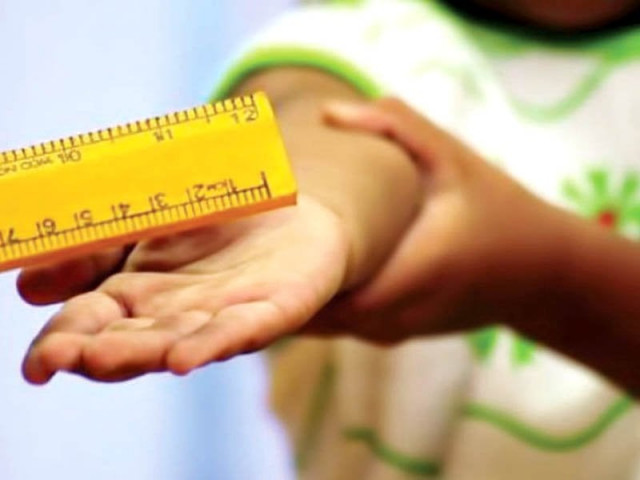Punishing our children
Educators need to be educated about the other tools they have at their disposal to inculcate discipline.

52 per cent of those surveyed fully disagreed that fear of punishment motivated children to perform well in school. PHOTO: FILE
What is paradoxical is that 52 per cent of those surveyed fully disagreed that fear of punishment motivated children to perform well in school. This means that teachers and parents implicitly realise the ineffectiveness of corporal punishment, but still wrongly view it as an essential tool in inculcating discipline and building character. The point of any punishment must be to discourage unwanted behaviour and replace it with desirable conduct. But the children surveyed in the study said that they were beaten when the teacher was in a bad mood, which means that they failed to associate the punishment with their own conduct and were thus unlikely to change it.
It is deplorable that the notions of these caregivers and educators are so divergent from the norms of humanity. Such attitudes have no place in civilised society and a campaign to put an end to such practices is needed. Parents and teachers need to realise that by itself corporal punishment cannot teach children right from wrong and is likely to lead to a cycle of harmful behaviour, including aggression and future abuse of children or spouse. Educators need to be educated about the other tools they have at their disposal to inculcate discipline, including reasoning, story-telling and encouragement.
Published in The Express Tribune, June 29th, 2013.
Like Opinion & Editorial on Facebook, follow @ETOpEd on Twitter to receive all updates on all our daily pieces.















COMMENTS
Comments are moderated and generally will be posted if they are on-topic and not abusive.
For more information, please see our Comments FAQ